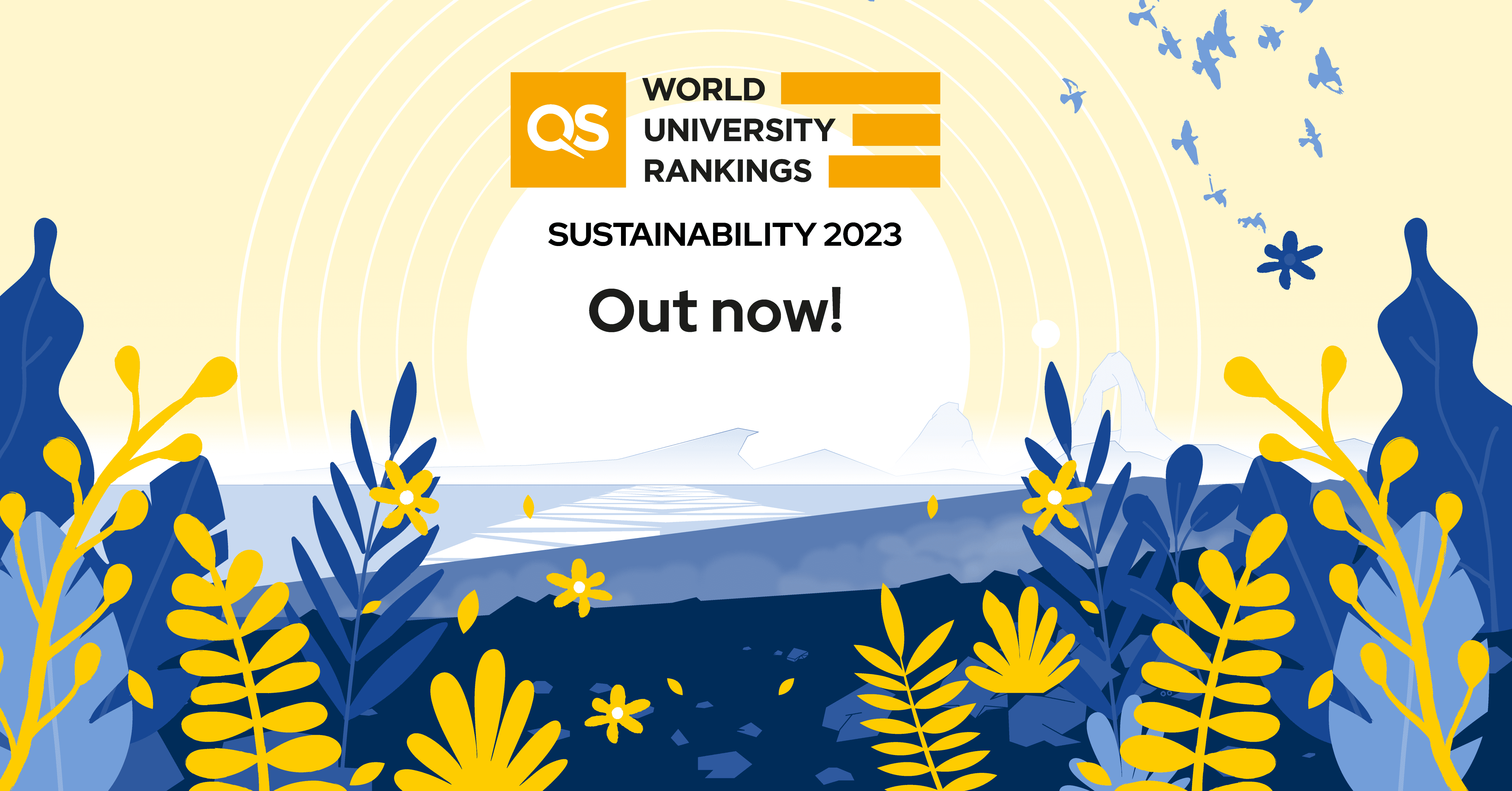
The QS World University Rankings: Sustainability 2023 are now live!
The first ever QS World University Rankings: Sustainability features 700 institutions; reflecting their performance in two main categories: Environmental Impact and Social Impact. We want to show how universities are taking action to tackle the world’s greatest Environmental, Social and Governance (ESG) challenges.
The rankings assess an institution’s commitments to building a sustainable world with emphasis on their influence beyond campus grounds. The major locations represented include the United States, with 134 institutions ranked, the United Kingdom (67), China, Mainland (39) Germany (36), Australia (34) and Italy (32).
The Environmental Impact category comprises of three performance indicators: sustainable institutions, sustainable education and sustainable research. The Social Impact category considers five indicators: equality, knowledge exchange, impact of education, employment and opportunities, and quality of life.
Already interested in learning more? Register for our upcoming webinar: QS World University Rankings: Sustainability 2023 – Our Approach taking place on November 3rd at both 09:00 and 16:00 UK time. Join our Rankings Manager Drew MacFarlane, and Director of Analytics and Evaluation Leigh Kamolins, to hear about the approach QS has taken to evaluating sustainable development in higher education. We will cover the design and metrics of the ranking and discuss how to use, interpret and engage with them productively.
Register for the 09:00 session (UK time)Register for the 16:00 session (UK time)
The top 10 institutions this year are:
1. University of California, Berkeley (UCB)
2. University of Toronto
3. University of British Columbia
4. University of Edinburgh
5= The University of New South Wales (UNSW Sydney)
5= The University of Sydney
7. The University of Tokyo
8. University of Pennsylvania
9. Yale University
10. The University of Auckland
First place goes to University of California, Berkeley (UCB), receiving perfect scores of 100 for both their environmental and social impact. Second and third place respectively has been awarded to the University of Toronto (94.9) and the University of British Columbia (94.5) – with the latter having received the second highest score for their social impact with 98.4.
The University of Edinburgh sits in fourth place, whilst the University of New South Wales (UNSW) and the University of Sydney share fifth place with equivalent overall scores of 89.1.
The University of Tokyo, University of Pennsylvania and Yale University are ranked seventh, eighth and ninth respectively – the University of Tokyo received the second highest score for environmental impact overall (96.2), as well as the second highest score in Sustainable Education (99.6), just behind the University of California, Berkeley (100).
In 10th place sits the University of Auckland, with an overall score of 85.1 – Uppsala University comes in 11th with 84.8, securing a perfect score of 100 in Equality.
Of the top 100 universities, with many showing strong commitments to sustainability in both environmental and social arenas, the countries most represented are the US (29), UK (20), Australia (13), Canada (9), Sweden (3), Netherlands (3) and Italy (3). Many of the top 100 ranked institutions were awarded their standing due to the tangible impacts that can be measured in areas beyond just operational or on-campus activity, such as the impact of their sustainability research and their reputation among staff.
Several institutions achieved perfect scores in a variety of performance indicators, including the National University of Singapore (NUS) for ‘sustainable research’ (ranked 81st overall), Stanford University and the University of Oxford for ‘impact of education’ (ranked 26th and 16th respectively) and the University of Cambridge for ’employability and opportunities’ (ranked 19th overall).
See the full QS World University Rankings: Sustainability 2023



